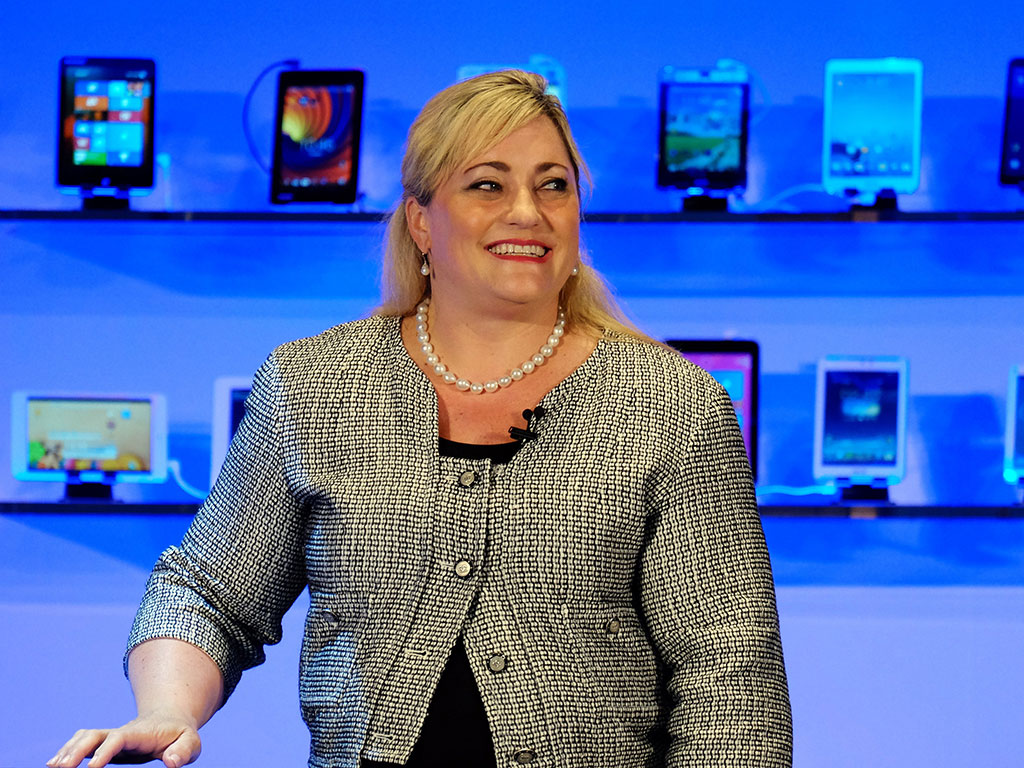‘Thank you for the best years of my professional life’: Intel’s No 2 resigns
Intel’s highest-ranking woman, Renée James, steps down from her role as president

Renée James has worked at Intel for 28 years, holding various high-ranking roles
In a letter sent to staff at Intel, the firm’s president, Renée James confirmed that she will be leaving the company in pursuit of a CEO position elsewhere. The move comes at a critical juncture in Intel as it continues to struggle with falling sales of its microprocessors and unsuccessful ventures into new markets. Along with James’s departure, CEO Brian Krzanich announced a series of other “leadership changes” in a company statement published on July 2.
James’s appointment as President in May 2013 made her one of the most influential and highest paid women in Silicon Valley
Throughout her 28 years at Intel, James has held numerous high-ranking roles, including COO of Intel Online Services and more recently, executive vice president of the Software and Services Group. James has also headed strategically significant acquisitions in the group’s expansion efforts, including the purchase of online security firm McAfee for $7.6bn and embedded system software producer Wind River Systems for $884m. James’s appointment as president in May 2013 made her one of the most influential and highest paid women in Silicon Valley, as indicated by her ranking in Fortune’s World’s 100 Most Powerful Women list.
“When Brian and I were appointed to our current roles, I knew then that being the leader of a company was something that I desired as part of my own leadership journey”, James wrote in the letter. “Now is the right time for me to take that next step.” James will stay on at Intel until January in order to help with the transition.
As part of the drastic organisation overhaul aimed at boosting sales, Intel veteran Arvind Sodhani will retire from his role as President of Intel Capital in January. Wendell Brooks will replace Sodhani, while also continuing to lead the group’s mergers and acquisitions. Also leaving is Hermann Eul, head of Intel’s mobile business arm and Mike Bell, General Manager of the New Devices Group segment.
Falling PCs have had a drastic impact on the sale of Intel’s microprocessors in recent years, leading to arduous efforts to branch out into chip manufacturing for mobile devices and the wearables market. So far, neither project has proven successful, while chip production for mobile tablets has even incurred a loss of revenue in recent months.
Given the latest management reshuffle and June’s $16.7bn acquisition of chipmaker and electronic system designers Altera, it appears that Intel is going to great lengths to ensure a turnaround of its current downward trend. Whether this drastic approach work is yet to be seen.













